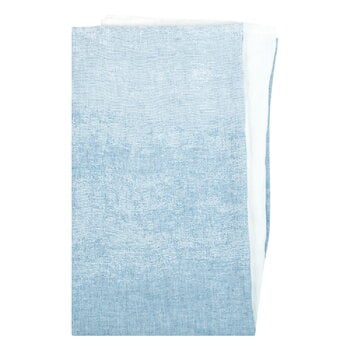The Saari tablecloth by Lapuan Kankurit is decorated with a delicate Saari pattern, designed by Aoi Yoshizawa. The two-tone pattern takes your thoughts to the seaside and archipelago – "saari" is Finnish for island. The multifunctional linen cloth completes the look of table settings as a beautiful tablecloth but also works as a thin blanket in the summer heat, a curtain at the window or a picnic mat in the park.
The Saari cloth is made in Finland of washed European linen, a carefree material with a naturally laid-back appearance. It is not necessary to iron the throw – small wrinkles and creases only give it a charming relaxed, natural look.













